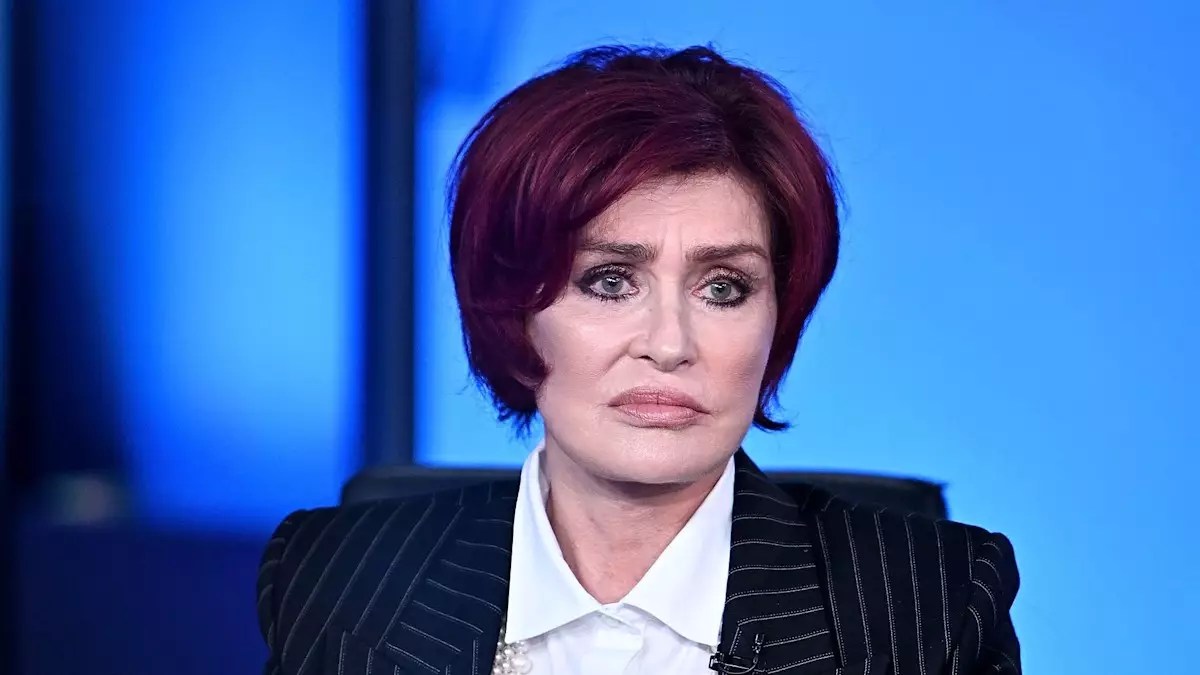In an era where the pressures of fame can be overwhelming, the music industry frequently fails to support its most vulnerable stars. This sentiment was poignantly echoed by Sharon Osbourne following the tragic death of former One Direction member Liam Payne. Osbourne’s heartfelt tribute underscored the unconditional love and sorrow she felt for a young artist who, despite his immense talent and popularity, faced tremendous struggles both on and off the stage. At the age of 72, Sharon took to Instagram to voice her grief, stating, “Liam, my heart aches. We all let you down.” Her raw honesty reflects not only a personal connection but a broader commentary on the responsibilities of the music industry to protect its young talents.
Liam Payne’s rise to stardom, which began at the tender age of 16 as part of One Direction during The X Factor 2010, was meteoric. In just a few short years, he transitioned from a hopeful contestant to a global sensation alongside his bandmates Harry Styles, Niall Horan, Zayn Malik, and Louis Tomlinson. While the band catapulted to fame with hits like “What Makes You Beautiful,” the transition from teenage boy to iconic music star came with its own set of colossal pressures. Sharon’s tribute draws attention to the question that looms large: who was there to support Liam during such a critical period in his life? Were the executives and producers who profited from his fame prepared to care for the mental well-being of those who made them successful?
Despite achieving monumental success—selling millions of records and winning numerous awards—Liam’s story was marred by personal turmoil. The vibrant life of a pop star was often overshadowed by his struggles with addiction and mental health issues. This paradox of fame paints a troubling portrait of modern celebrity culture, where the glimmering surface can often mask deeper underlying problems. Sharon’s sorrowful inquiry, “Where was this industry when you needed them?” sheds light on a critical issue often ignored: the accountability of the music industry in safeguarding its young stars.
Liam was candid about his personal battles. His revelations about addiction during interviews demonstrated not only his courage but also the pressing mental health concerns faced by entertainers. His struggles, from battling alcoholism to reaching a point of “rock bottom,” resonated deeply with fans who admired him for his authenticity. Indeed, it is a tragic irony that even as he shared his journey towards sobriety, with a proud announcement in 2023 about achieving nearly six months of sobriety, his life ended prematurely, leaving fans and supporters grappling with the sheer loss.
As the world mourns the loss of a promising young artist, questions of accountability within the music sector emerge more prominently. The tragic fate of Liam Payne serves as a reminder of the critical need for comprehensive support systems within an industry that often glorifies fame without addressing its accompanying challenges. Effective mentorship programs, psychological support, and a more humane approach from management teams can create a healthier environment for young performers navigating the complexities of the entertainment world.
Moreover, Sharon Osbourne’s heartfelt words resonate beyond just a tribute. They challenge industry insiders to reflect on their ethical responsibilities towards their talent. In an age of social media, where the pressure to maintain an image is relentless, it becomes imperative to prioritize the mental well-being of every artist over profit margins.
As conversations about mental health and the responsibilities of the music industry continue, Liam Payne’s legacy will be a crucial touchstone for future discourse. The pain expressed by Osbourne—and echoed by countless fans—encapsulates a broader societal need to protect vulnerable individuals from the rigors of fame. His journey exemplifies the importance of compassion, understanding, and support in an industry that often seems more inclined to capitalize on talent rather than nurture it.
Liam Payne’s untimely passing serves as a sobering reminder of the darker realities that often accompany fame. As Sharon Osbourne poignantly signed off her tribute with “rest in peace, my friend,” it is crucial for the music industry and its stakeholders to heed her words, cultivating an environment where young artists can thrive rather than merely survive.


Leave a Reply